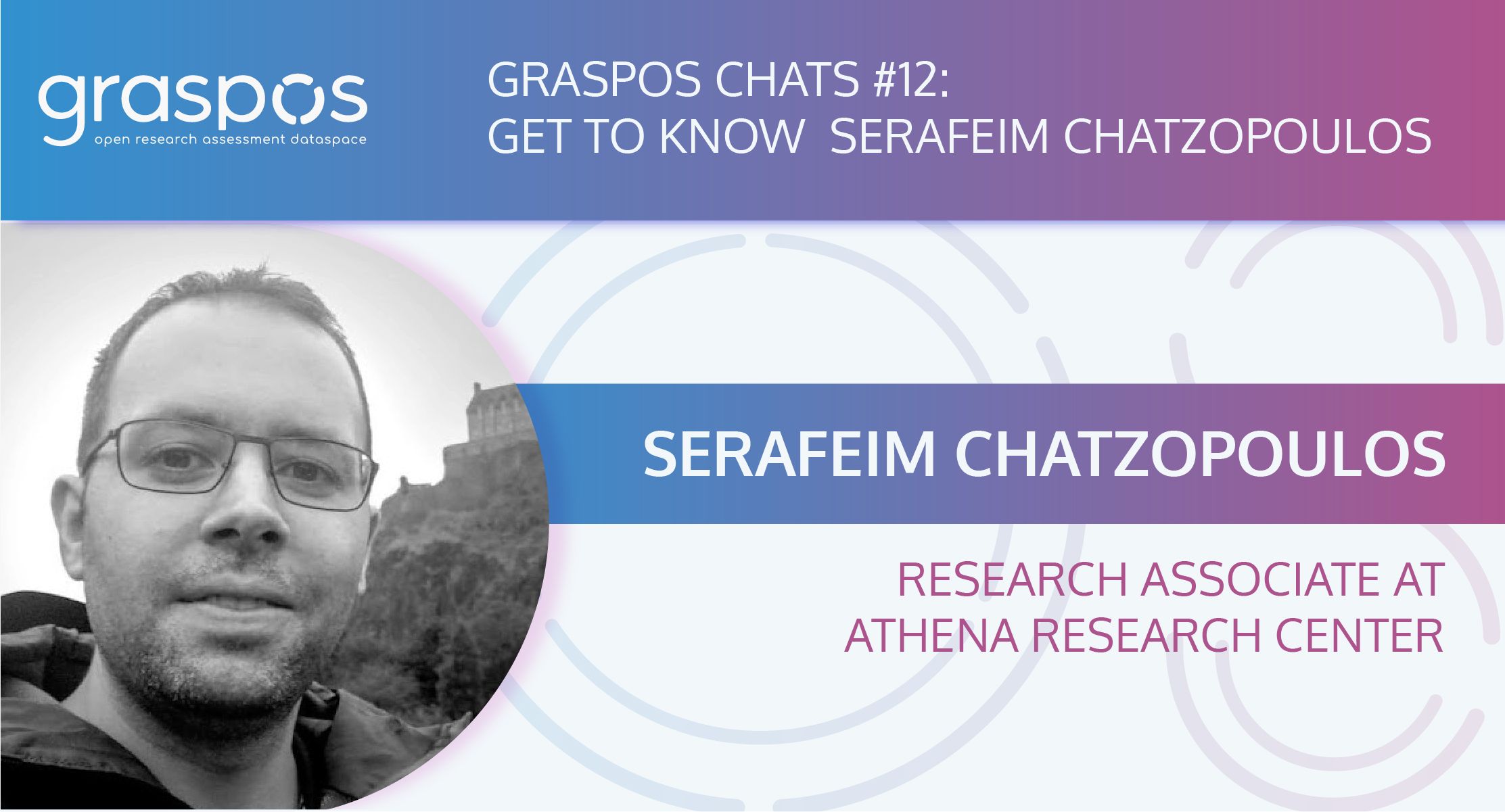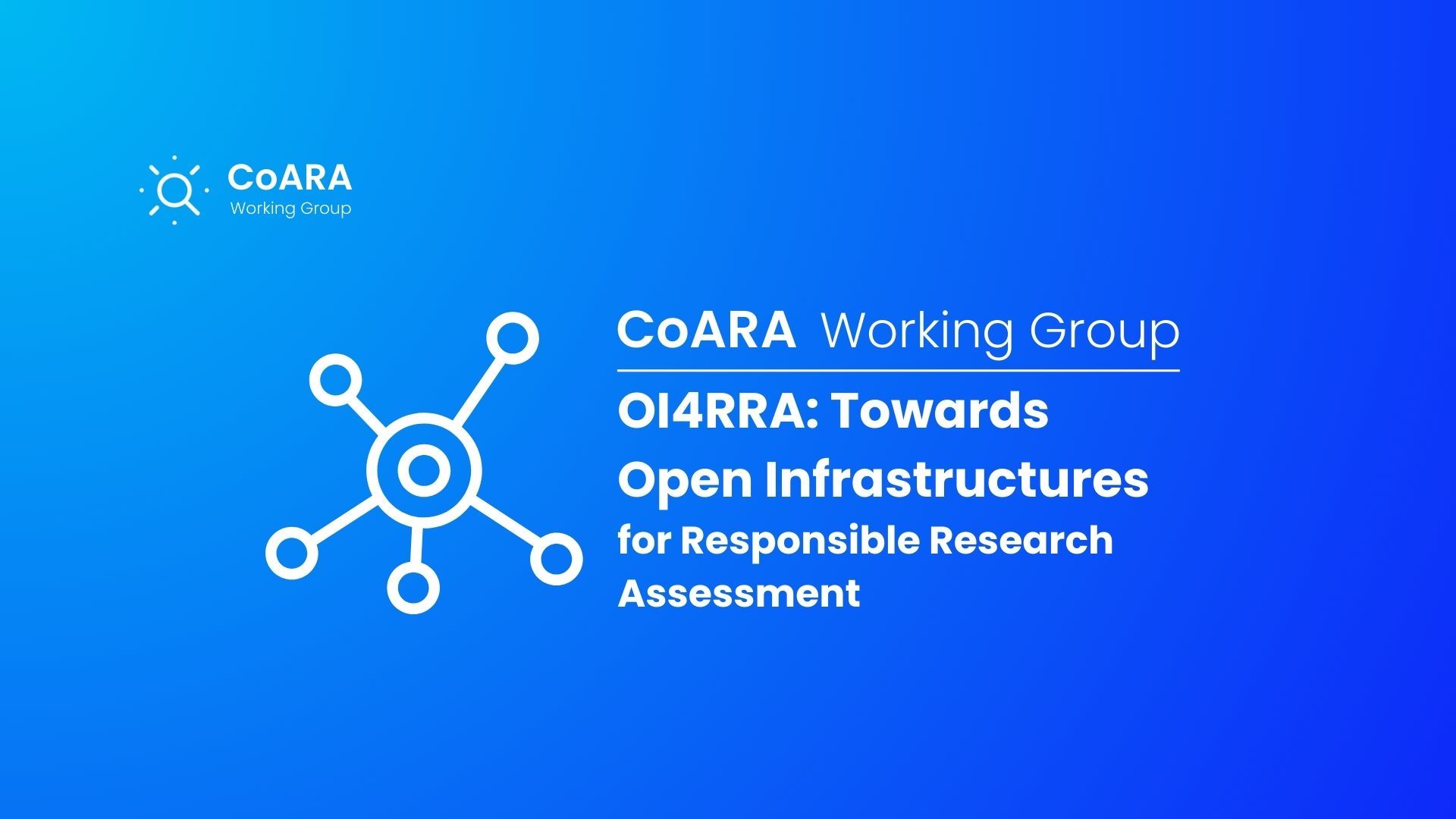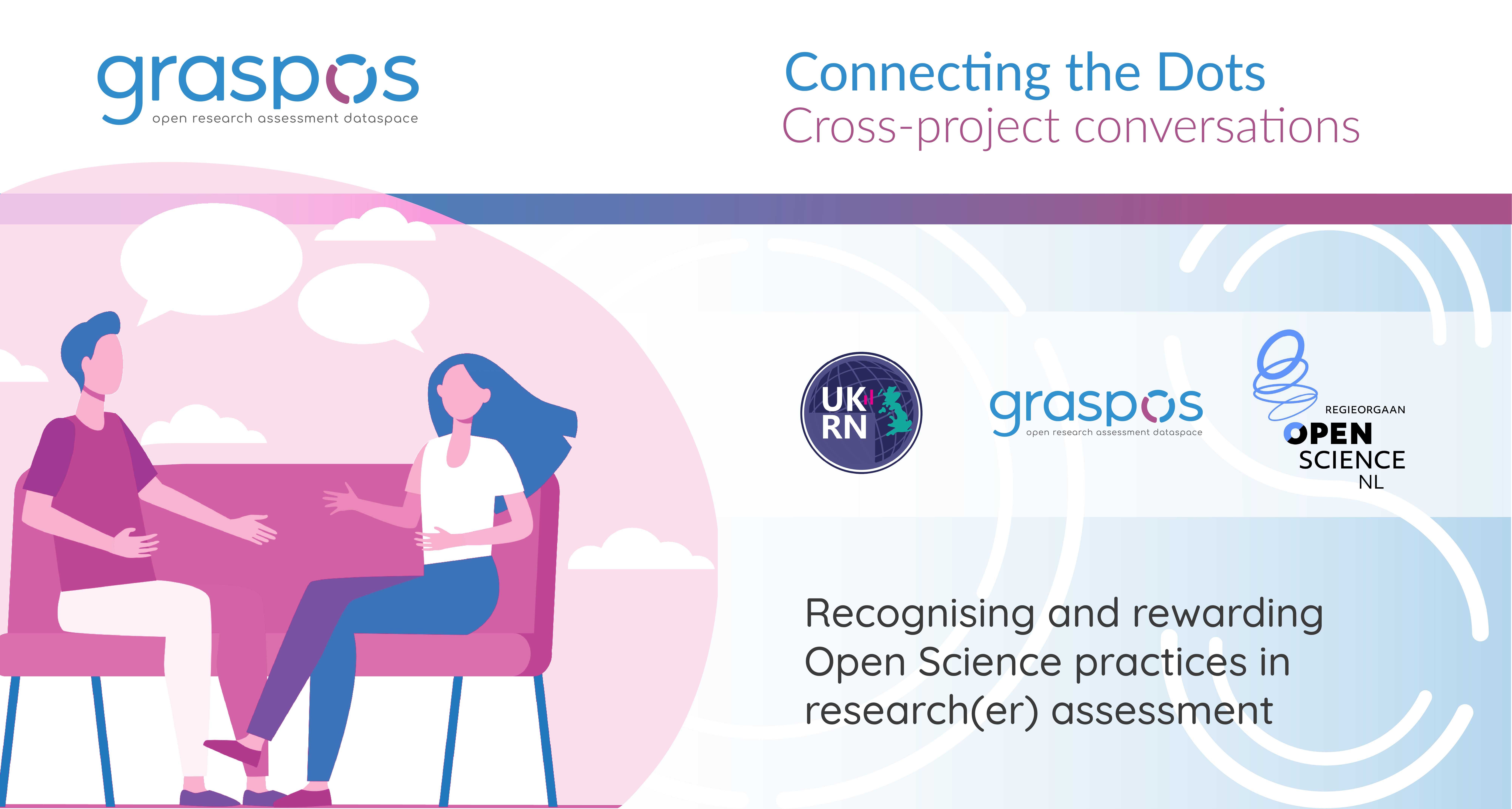Rethinking Research Assessment - a comprehensive Researcher profile for a broader and more personalised representation of researchers’ contributions to science
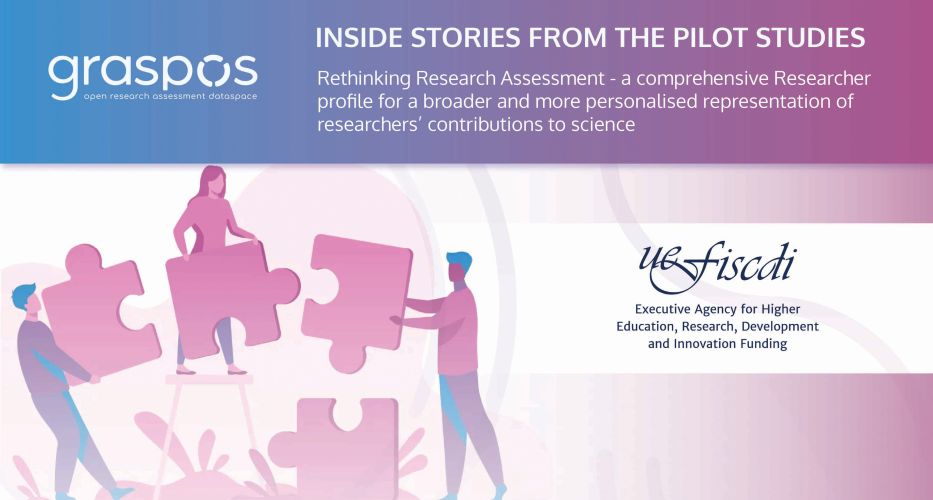
THE INSIDE STORIES PROVIDE INSIGHT INTO THE GRASPOS PILOT STUDIES, PRESENTING THE AIMS AND CURRENT STATUS OF THEIR ACTIVITIES. LEARN ABOUT WHAT THE PILOTS ARE UP AND HOW THEY AIM TO BRING OPEN SCIENCE AND RESEARCH ASSESSMENT TOGETHER.
This month, the Inside Stories from the Pilot Studies welcomed Ioana Spanache and Alina Irimia from UEFISCDI, the Executive Agency for Higher Education, Research and Innovation Funding in Romania.

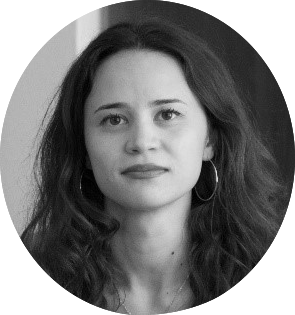
Ioana Spanache Alina Irimia
Hello Ioana and Alina, CAN YOU please INTRODUCE US TO THE PILOT STUDY YOU ARE CARRYING OUT IN GrasPOS? What are your main objectives?
The focus of UEFISCDI’s pilot within the GraspOS project is to analyse, develop and test the implementation of the Openness Researcher profile within our national platforms (e.g. BrainMap), by also aligning with CoARA’s Agreement on Reforming Research Assessment, open science practices, and incorporating elements specific to narrative CVs and Openness Profile.
For this we are currently working on building a test version (a mock-up) of the openness researcher profile, based on the current BrainMap researcher profile (a platform with over 60 000 registered researchers, technicians and entrepreneurs from all over the world) to be tested in terms of content, as well as user experience, with representatives of research communities in Romania (researchers, representatives of RPOs, and other).
Specifically, the goals related to the GraspOS project are as follows:
- test the viability of the tools and services (indicator toolboxes) in accordance with the commitments of the organisation’s policies, especially related to indicators that cover more types of research products and research activities;
- analyse and test the implementation of the openness researcher profile within national platforms including user experience;
- align with CoARA’s Agreement on Reforming Research Assessment;
- experiment and do a feasibility analysis on integration with the OpenAIRE Research Graph.
IN YOUR OPINION, HOW DOES this pilot study CONTRIBUTE TO FILL IN CERTAIN gaps or challenges in the current research assessment system?
UEFISCDI is the main funder of competitive research in Romania, and also an important policy advisor to both Ministries of Education and Research, Innovation and Digitalization, as well as a facilitator of dialogue with the research and innovation communities in Romania.
The current assessment system tends to value especially traditional outputs like publications and citations, but other significant contributions, such as databases, software, policy briefs, and contributions to public understanding of science, are often overlooked at national level. This pilot seeks to fill this gap by expanding the definition of valuable research outputs and allowing for a broader and more personalised representation of a researcher’s impact. This aspect is directly in line with CoARA’s commitment to recognizing diverse research outputs and activities.
Also, it is worth mentioning that the initiative supports the implementation of the strategic objectives defined at national level for the transition to Open Science and a new research culture. UEFISCDI has been the leader in developing the National Open Science Strategic Framework which has at its core the White Paper of the transition to Open Science. The strategic objective 7 of the White paper talks about rethinking the current evaluation system to encompass a broader spectrum of research activities and outcomes, and take into consideration open science practices, such as early sharing of research findings, collaborative efforts, and open access to research results.
CAN YOU TELL US MORE ABOUT Which specific aspects of open science you ARE looking into in relation to responsible research assessment?
In the case of our pilot activity, the Openness profile will be part of the reimagined Researcher profile, as an additional layer, aggregating data from all categories of research outputs and contributions.
Thus, we aim to bring to light a wider variety of contributions to science from categories such as research (e.g. projects, methods, data, software, publications, materials, etc.), education (e.g. courses, student/ staff supervision, mentoring, etc.), leadership, innovation, communication & engagement, and we wish to incorporate the Openness profile as a portfolio illustrating in one place a researcher’s contributions to Open Science (e.g. open datasets, method sets, software, open access publications, courses openly available etc. ). For this work in particular, we take into account CoARA’s commitments (as a signatory of the CoARA Agreement) and the OPUS Research Assessment Framework (RAF), UEFISCDI being a partner in the OPUS project and a pilot of the RAF.
HAVE SPECIFIC activities or milestones BEEN ACHIEVED?
At the beginning of summer, we launched the first version of the Researcher Openness profile. This came after a longer process of analysing research assessment processes, criteria and indicators used at national level, reviewing relevant literature, and analysing the workflows and types of data we already collect at institutional level.
The first version of the redesigned Researcher profile, which includes a dedicated Openness profile section, a more comprehensive list of research outputs and activities and elements specific to the narrative CV, was elaborated to incorporate a broader diversity of indicators as inspired by CoARA commitments. For this, we have used as reference the Research Assessment Framework (RAF) produced within the OPUS project. Of course, the elaboration and publication of this first version of the Researcher Profile is a major milestone in our pilot activity.
For the time being we are in the stage of receiving feedback both internally, from colleagues at UEFISCDI from different departments, and externally, from project partners and other organisations/ individuals interested in the topic. Moreover, we are also currently working on identifying potential sources of information and input that could be used for data collection purposes for the different types of indicators we are proposing. In the end we wish to be able to provide information as close as possible to the specifications needed by other departments in our organisation for implementing the Researcher profile or parts of it, in case that will be decided.
The next steps are to design a mock up (graphical) version for the Researcher profile and then test it with researchers and research communities at national level and beyond.
How can this pilot be relevant to support the transition towards an open science-aware research assessment system?
The redesigned Researcher profile includes a dedicated Openness profile section, which aims to serve as a potential mechanism for increasing the visibility of Open Science practices, and as a result, encourage their recognition and reward. The Openness profile is envisioned as a tab or chapter in the Researcher profile that aggregates information from across all other chapters and tabs, having in addition the layer of being attributed to OS practices such as open access publications, databases, citizen science and other.
Moreover, the built template is also intended to include detailed information about specifications needed to incorporate the Openness profile into such researcher profiles as well as into monitoring and reporting workflows.
Thank you for your time Ioana and Alina!

